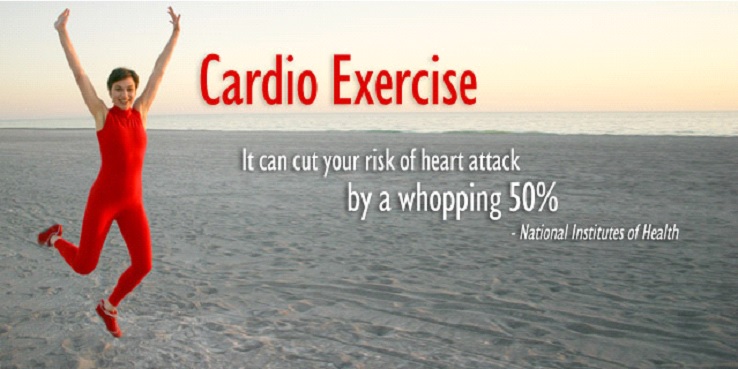I became interested in cardio exercise routines and memory several years ago when my older students began to tell me that their memories seemed to improve after they took my class. I was teaching mostly cardio exercise routines in those days. I started with simple steps and built up to a pretty complex routine. There has to be a connection I thought, between the physical movement, making your brain learn this routine, and improved memory.

I had clients telling me their memory was getting better and I was curious. So, I started to break it down.
What I was having people do is learn short phrases of movement and then link them together. The cardio exercise routine required them to move forward and back, side to side, remember specific steps, and stay in rhythm. This was a real challenge for many of my students who had never done anything like this before. As they got more proficient, the class became a social gathering because of this shared experience. My students felt energized afterwards, not exhausted. They told me that besides getting a good body workout they were getting a memory workout as well. They said they could actually remember things better.

I wondered if there was science to support our anecdotal experience.
I contacted a couple of local Alzheimer’s specialists (there was no internet back then) and they told me I was probably right, but there weren’t any specific studies on this more than 20 years ago. Even now the research is not conclusive. But, technology in the last 15 years has allowed science to discover a lot more about the brain.
Vascular memory loss has been linked to heart disease, and cardio fitness is a major factor in preventing and managing that issue. Aerobic exercise increases the amount of oxygen supplied to the brain improving mental function. Cardio fitness has been shown to reduce loss of brain cells in older adults.
A study of 1,449 older adults shows those who in middle age exercised vigorously enough to perspire and breathe hard for 20 to 30 minutes at least twice a week reduced their risk of later developing Alzheimer’s disease by about 60 percent.
But cardio is just part of the equation.
Research published in the New England Journal of Medicine suggests that certain types of dance, particularly with routines to learn and remember, may help prevent age-onset memory loss and diseases like Alzheimer’s. And a study conducted at the Karolinska Institute in Stockholm, says activities that combined mental and social as well as physical stimulation offered the greatest protection against dementia.
Activity is the active word. Be physically active, mentally active and socially active, preferably all at once. In these times of Gym Closures and Social Distancing, it can be pretty tough to get and stay fit. It can be especially hard if you are a beginner, 50 plus or have special health conditions but there are many virtual options now t help you get fit and be safe. It’s time to work out our hearts and minds!
Mirabai Holland MFA, EP-C, CHC is one of the foremost authorities in the health and fitness industry. Her customer top rated exercise videos for Health issues like Osteoporosis, Arthritis, Heart Disease, Diabetes & more are available www.mirabaiholland.com.
Mirabai offers one-on-on Health Coaching on Skype or Phone. Contact her at askmirabai@movingfree.com

